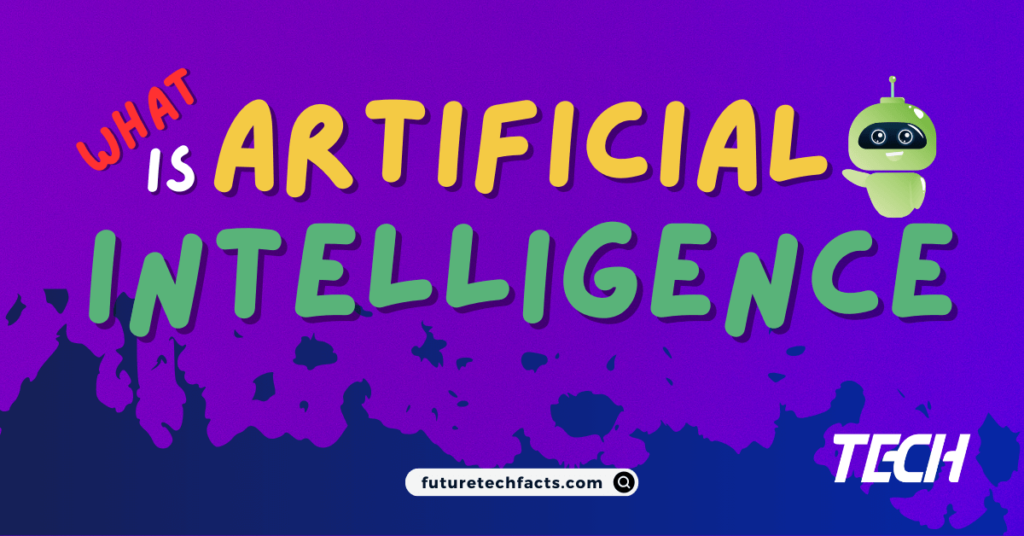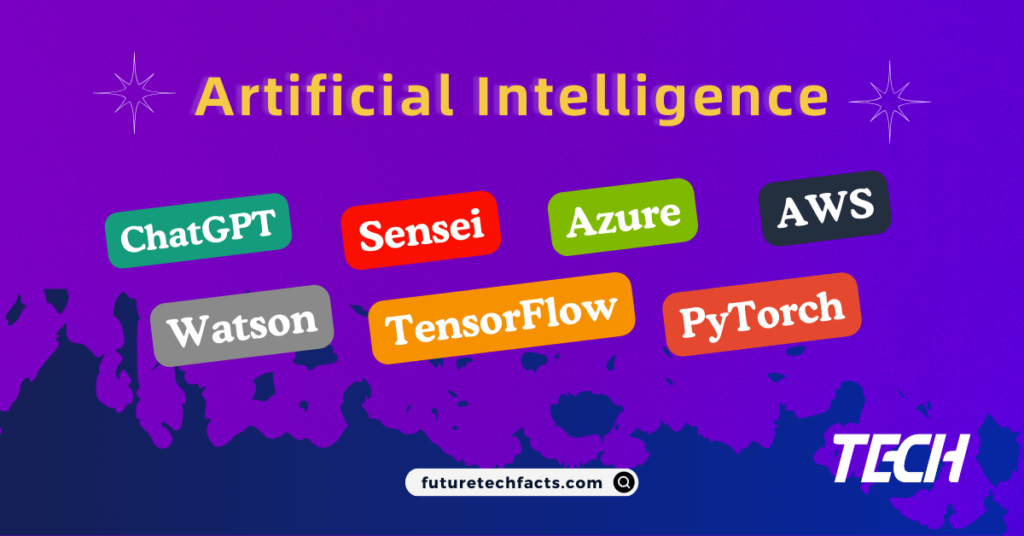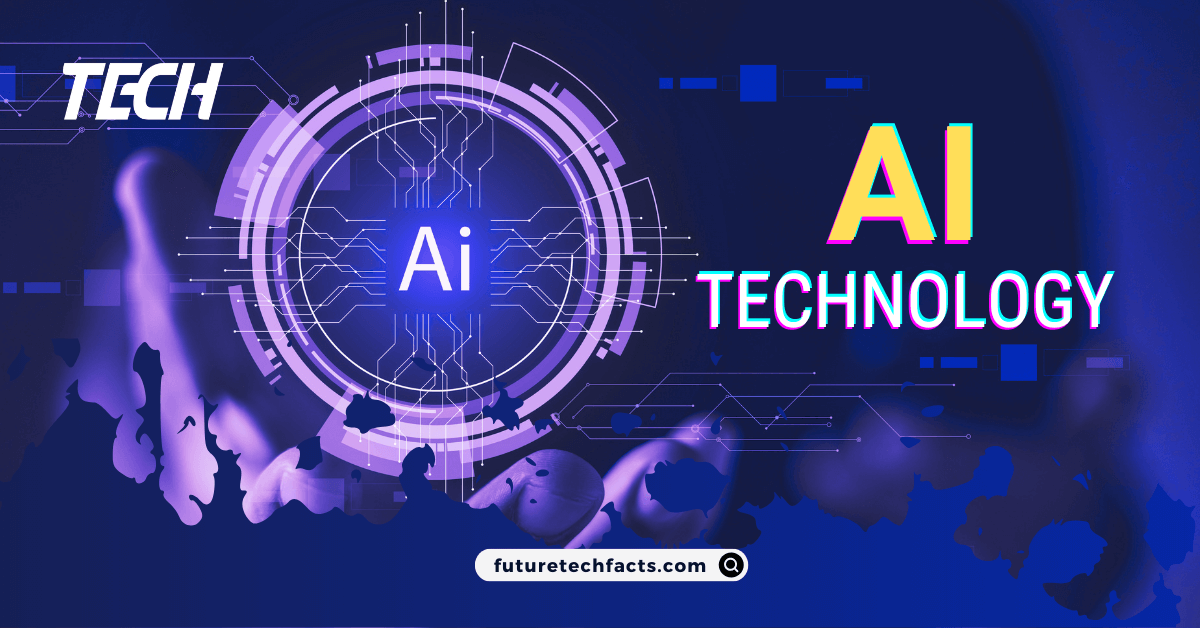In the rapidly evolving landscape of technology, one term that has gained immense prominence is “AI technology.” This revolutionary field is transforming the way we live, work, and interact with the world around us. In this comprehensive guide, we will delve into the various facets of AI technology, exploring its definition, prospects, avenues for learning, and the best tools available in the market.
Table of Contents
What is Artificial Intelligence

Artificial Intelligence (AI) is a science that studies giving computers the ability to think and learn like human intelligence. Its main objective is to provide machines with the ability to solve problems, make decisions, and take actions like human intelligence.
The mechanisms of AI include various subfields, such as machine learning, neural networks, and cognitive computing. In machine learning, computer systems can learn from data, allowing them to learn about themselves and improve their actions. Neural networks are a technology inspired by the structure of the human brain and are used in amazing research for large data sets. In cognitive computing, artificial intelligence tries to understand the human thinking process, allowing machines to make human-like decisions.
The application areas of artificial intelligence are expanding, such as clean energy, aging sciences, financial services, and game design. It is being used in problem-solving, robotics, decision support systems, and many other areas related to independence.
With increasing technological tools, Artificial Intelligence is on the rise and is expected to play an even more important role in the times to come.
How to Learn Artificial Intelligence
You can follow the following steps to learn better about Artificial Intelligence (AI):
Get started with the released courses:
There are free and three-word courses available on machine learning and artificial intelligence on online platforms. Sites like Coursera, edX, Khan Academy, and Udacity are suitable sources.
Read books for theory and practice:
Read books on Machine Learning and AI for self-study. Some famous books are “Artificial Intelligence: A Modern Approach” (Russell & Norvig), “Hands-On Machine Learning with Scikit-Learn and TensorFlow” (Aurélien Géron), and “Deep Learning” (Ian Goodfellow, Yoshua Bengio, Aaron Courville).
Understanding of Mathematics and Statistics:
An understanding of mathematics and statistics is important when working in AI. Study to master linear algebra, calculus, relevant statistics, and other statistics techniques.
Create Project:
Apply what you learn to your projects. This will give you more experience and make your learned information permanent.
Read online references and blogs:
Regularly read blogs and online references related to Artificial Intelligence for the latest technical news, updates, and new solutions to problems.
Join the community:
Visit community platforms like GitHub and connect with experts and other Artificial Intelligence students. You may also get help to solve problems.
Surrender and choose the right path:
AI is a big field, so you need to decide what you want to specialize in, whether you want to specialize in data science, natural language processing, or something else.
Remember, learning the field of Artificial Intelligence is a long journey, but with consistent effort and practice you can move towards your goals.
Future of AI Technology
The future of artificial intelligence is very interesting and promising. In the coming decades, this technological capability could bring about significant changes in human relations. The following are some of the areas that may reveal the future of artificial intelligence:
- Independence and decision support: Artificial intelligence can be helpful in decision-making, giving individuals more independence in important situations of their lives.
- Health and Medicine: With technological advancements, artificial intelligence can be used to help in medical research and diagnosis of diseases.
- Education and Industry: The use of artificial intelligence in education can help in providing personalized education to students and their style. Even in industries, artificial intelligence can increase decision-making capabilities.
- Improving social relationships: Through expert systems and learning algorithms, artificial intelligence can improve social networks and relationships.
- Science and Research: Artificial intelligence can trigger discoveries and research in the fields of science and research, which can improve our social and economic outlook.
However, it will face challenges and responsibilities, such as ethics, privacy, and technical support. We must ensure that artificial intelligence is used for the benefit of society and that it shares the benefits of overall prosperity.
Top 7 Artificial Intelligence Websites

There are many websites for AI Technology. You can search for the following types of artificial intelligence-related websites:
1. OpenAI Artificial Intelligence
OpenAI (https://www.openai.com/): OpenAI’s ChatGPT is a language model developed using deep learning techniques, particularly the Transformer architecture. It is designed for natural language understanding and generation. ChatGPT is the most popular Generative Artificial Intelligence.
Key Features:
- Generative Text: ChatGPT can generate human-like responses to text prompts, making it suitable for conversational AI applications.
- Large-scale Training: It has been trained on a diverse range of internet text to understand and generate contextually relevant responses.
- Natural Language Processing: ChatGPT demonstrates capabilities in understanding and generating coherent and contextually appropriate text.
Learn more about ChatGPT: What Is ChatGPT Ai? You Really Need To Know!
2. Adobe Artificial Intelligence
Adobe Sensei (https://www.adobe.com/sensei/): Adobe Sensei is Adobe’s AI and machine learning platform integrated into various Adobe products to enhance creative workflows and automate tasks.
Key Features:
- Image and Video Analysis: Adobe Sensei powers features like automatic tagging, content recognition, and image manipulation in Adobe’s creative software.
- Intelligent Search: It provides intelligent search capabilities, making it easier to find assets within Adobe applications.
- Creative Assistance: Adobe Sensei assists creative professionals by suggesting design elements, streamlining workflows, and automating repetitive tasks.
- Personalization: Adobe Sensei enables personalized experiences by understanding user preferences and behaviors.
3. Azure artificial intelligence
Microsoft Azure AI (https://azure.microsoft.com/en-us/services/cognitive-services/): The Microsoft Azure platform provides you with various cognitive services, which are designed for AI. On their website, you can get their services and technical details.
Key Features:
- Azure Cognitive Services: A set of APIs and services for adding vision, speech, language, and decision capabilities to applications.
- Azure Machine Learning: A platform for building, training, and deploying machine learning models at scale.
- Azure Bot Services: Allows developers to build intelligent bots for various communication channels.
- Azure Personalizer: Provides personalized content recommendations.
4. Amazon Artificial Intelligence
Amazon AWS AI (https://aws.amazon.com/): Amazon AI refers to the suite of artificial intelligence services offered by Amazon Web Services (AWS). Amazon AWS AI is a Generative Artificial Intelligence
Key Features:
- Amazon SageMaker: A fully managed service for building, training, and deploying machine learning models.
- Rekognition: An image and video analysis service for facial recognition, object detection, and content moderation.
- Lex: Enables building conversational interfaces using voice and text.
- Polly: Text-to-speech service for creating lifelike speech.
Recommended to Read: What Is Generative AI? You Really Need To Know!
5. IBM Artificial Intelligence
IBM Watson (https://www.ibm.com/cloud/watson): IBM Watson is an AI platform that can be widely used to provide you intelligence in various fields. On their website, you can find information about their services, products, and support.
Key Features:
- Watson Studio: Provides tools for data scientists, developers, and domain experts to collaboratively work with data.
- Watson Assistant: Helps build AI-powered chatbots and virtual agents.
- Watson Discovery: An AI search technology for extracting insights from large amounts of unstructured data.
- Watson Language Translator: Offers language translation capabilities.
6. TensorFlow Artificial Intelligence
TensorFlow (https://www.tensorflow.org/): TensorFlow is an open-source machine learning platform developed by Google. On its website, you will find documentation, content, and technical details of TensorFlow.
Key Features:
- Flexible Architecture: TensorFlow supports both deep learning and traditional machine learning models.
- Neural Network Building: Provides a comprehensive set of tools for building and training neural networks.
- TensorFlow Lite: Enables deploying machine learning models on mobile and edge devices.
- TensorFlow Extended (TFX): An end-to-end platform for deploying production-ready machine learning models.
7. PyTorch Artificial Intelligence
PyTorch (https://pytorch.org/): PyTorch is an open-source machine learning library developed by Facebook’s AI Research lab (FAIR).
Key Features:
- Dynamic Computational Graph: PyTorch uses a dynamic computation graph, allowing for more flexibility during model training and debugging.
- Tensor Computation: Provides a multi-dimensional tensor library, essential for building neural networks.
- Neural Network Module: The torch module facilitates the creation and training of neural networks.
- Ecosystem: Has a vibrant ecosystem with a supportive community, suitable for both research and production.
These platforms and frameworks play pivotal roles in advancing artificial intelligence and machine learning applications, each with its unique strengths and applications in various domains.
Recommended to Read: What Is ChatGPT Ai? You Really Need To Know!
Best Artificial Intelligence
When discussing the best tools in the field of Artificial Intelligence, it is essential to keep in mind the highest level of quality and security. Some of these top products include Generative Artificial Intelligence, Adobe Artificial Intelligence, Azure Artificial Intelligence, Amazon Artificial Intelligence, and IBM Artificial Intelligence.
Conclusion
In conclusion, AI technology stands as a beacon of innovation, shaping the future of technology and human experiences. From understanding the basics to exploring advanced applications, the journey into AI is both exciting and essential. As we look ahead, the benefits of AI for the future are vast, ranging from increased efficiency and automation to breakthroughs in healthcare and scientific research.
Embrace the power of AI technology and join the ranks of those shaping the future of our interconnected world.
FAQ
Q1: What is artificial intelligence?
Artificial Intelligence (AI) refers to the development of computer systems that can perform tasks that typically require human intelligence, such as visual perception, speech recognition, decision-making, and language translation.
Q2: What do you know about artificial intelligence?
Artificial Intelligence involves the creation of algorithms and models that enable machines to mimic cognitive functions, learn from data, and solve complex problems.
Q3: What is artificial intelligence with examples?
Examples of artificial intelligence include virtual personal assistants (like Siri and Alexa), image and speech recognition systems, recommendation algorithms, and self-driving cars.
Q4: What can artificial intelligence do?
Artificial Intelligence can perform tasks such as pattern recognition, language translation, problem-solving, decision-making, and automation of various processes.
Q5: What is artificial intelligence definition?
The definition of artificial intelligence is the development of computer systems capable of performing tasks that normally require human intelligence.
Q6: What is artificial intelligence in simple words?
In simple words, artificial intelligence refers to machines or computers that can perform tasks intelligently, simulating human-like cognitive functions.
Q7: What is artificial intelligence and machine learning?
Artificial Intelligence is the broader concept, while Machine Learning is a subset of AI that involves the use of algorithms to enable systems to learn and improve from experience.
Q8: What is artificial intelligence used for?
Artificial Intelligence is used for various applications, including data analysis, automation, natural language processing, image and speech recognition, and making predictions based on patterns in data.
Q9: What is the best artificial intelligence?
The concept of the “best” artificial intelligence is subjective and depends on the specific application. Some popular AI technologies include OpenAI’s GPT-3, Google’s BERT, and various deep learning models.
Q10: What is the future of artificial intelligence?
The future of artificial intelligence holds advancements in various fields, including healthcare, robotics, autonomous vehicles, and improved AI applications for everyday life.

Explore the dynamic world of AI technology with this insightful guide! From understanding its basics to discovering advanced applications, this comprehensive article unravels the transformative impact of Artificial Intelligence on our lives.